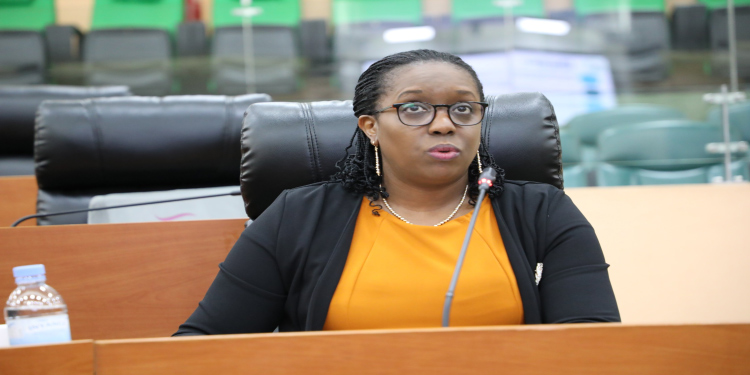
Béata Habyarimana made the remarks on July 13 while interacting with Senators, Members of the Committee on Foreign Affairs, Cooperation and Security on the trade benefits that Rwanda gets from regional and continental organisations.
ECCAS is made up of countries namely Angola, Burundi, Cameroon, Central African Republic, Congo (Brazzaville), Democratic Republic of Congo, Gabon, Equatorial Guinea, Chad, and Sao Tome and Principe.
According to data from the Ministry of Trade and Industry, Rwanda’s trade with other ECCAS countries amounted to Rwf171.9 billion in 2021 from Rwf88.2 billion in the previous year.
This figure includes Rwanda’s exports worth over Rwf 155.4 billion (or 90 % of total trade) to those countries and its imports from them worth over Rwf 16.4 billion.
Habyarimana pointed out that Rwanda’s products are liked in this region, including basic commodities such as milk and potatoes.
Rwanda is member to 4 economic entities namely, The Common Market for Eastern and Southern Africa (COMESA), the East African Community (EAC), ECCAS and the relatively new African Continental Free Trade Area, where trade is still in its nascent stage.
So far, apart from ECCAS, Rwanda’s imports from other blocs COMESA and EAC, exceed its exports there, going by data from the ministry.
“This [ECCAS] is the bloc where we want to put more effort because we are a net exporter [as Rwanda exports more products and services than it imports there], and they need our products,” she said.
Expanding Rwanda’s export market penetration
In recent years, Habyarimana said, Rwanda developed relations with ECCAS member countries including Gabon, Congo Brazzaville, Angola, Equatorial Guinea, and DRC.
RwandAir signed air agreements with Gabon, Congo and Cameroon and it is currently making flights to Libreville, Brazzaville and Douala.
These flights, she said, are helping to ease the transport of goods to those countries.
Regarding easing trade in the region, she said that Rwanda has not yet started implementing the ECCAS trade tariff agreements. However, she said that the roadmap showing how Rwanda will execute them was prepared and submitted to the Ministry of Finance and Economic Planning so that it gives inputs accordingly.
This is the case especially because the implementation requires removing tax on products from the ECCAS countries, she told senators.
Senator Hadija Murangwa Ndangiza, Chairperson of the Committee on Foreign Affairs, Cooperation and Security said that it is commendable that the national policy is considering how Rwanda can increase its exports so they outweigh its imports.
“I am happy to see that we have an agreement where we are a net exporter. This case of ECCAS is laudable. As a country, we should develop effective strategies to grow it so that we are able to benefit from external trade,” she said.
Senator Emmanuel Havugimana said that Rwanda has a major market in countries such as Gabon, Congo Brazzaville, and CAR, which depended on food imports from Europe because of factors including the relatively high cost of production that might be incurred if such foods are produced in those countries.
Meanwhile, he called for greater attention to ensuring food quality.
